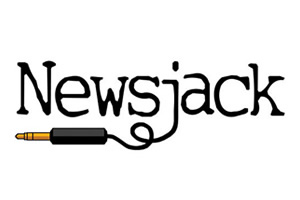Newsjack: A guide to the production week
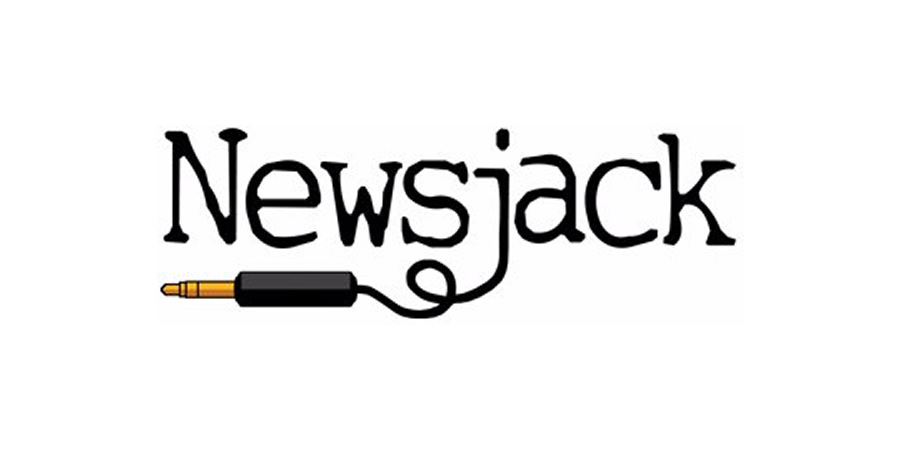
Newsjack, the BBC's topical news show which anyone can write for, is back.
During Series 17 we met up with producers Suzy Grant and Adnan Ahmed to find out what the show's production week looks like, so that you can see the journey your material takes when you submit.
Sunday
The team make sure they watch the weekend politics shows and read the newspapers to get to grips with the big news stories (and get a good night's sleep, ready for the week ahead).
Monday
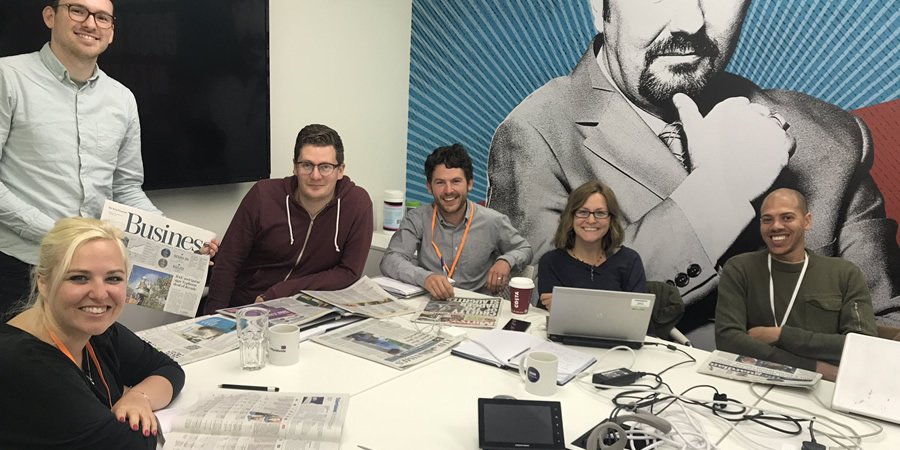
9am: Monday starts with the Writers' Room. Each week the producers invite some non-commissioned writers whose material has impressed them to come in to the BBC. It might be a name they recognise from previous weeks, or even previous series (so they really do remember you if you're sending in good stuff!). In this meeting the writers pitch ideas and the producers help to shape them.
As it's deadline day, everyone in the room has until the end of the day to submit their first drafts.
Noon: The sketch deadline closes. The producers don't read a single one of the sketches until after the deadline. That is so that the submissions can't influence the writers' room (and note that also means that it doesn't matter when you submit, as long as it's by the deadline).
Then they start reading submissions. As many as they can, while still giving notes to the writers' room.
The two producers read about 100 sketches each, and get other people from the BBC Comedy team to help too (so you never know who might be reading your material!). As the producers put it: "That's why it's great for a non-commissioned writer - they know someone in BBC Comedy is reading and wants their stuff to be made."
The number of sketches submitted can vary - it can go up and down by the week - but they're all read and put into folders: Yes, No or Maybe.
What they're looking for is a really strong idea, and funny characters (jokes help too). It doesn't need to get too expansive - keep it simple. And even if it's not perfect, if there's something there that they can work with, they'll give it a go.
8pm: They have a shortlist of around 50 sketches ready to take forward (from both email submissions and the writers' room).
The producers head home, have some dinner, then read all the sketches again. This time they're making notes on them, seeing how they think each may work, which performers might suit them best, tweaks to improve them, and so on. Plus they're already thinking how sketches will work both on the stage at the recording and on the radio.
Tuesday
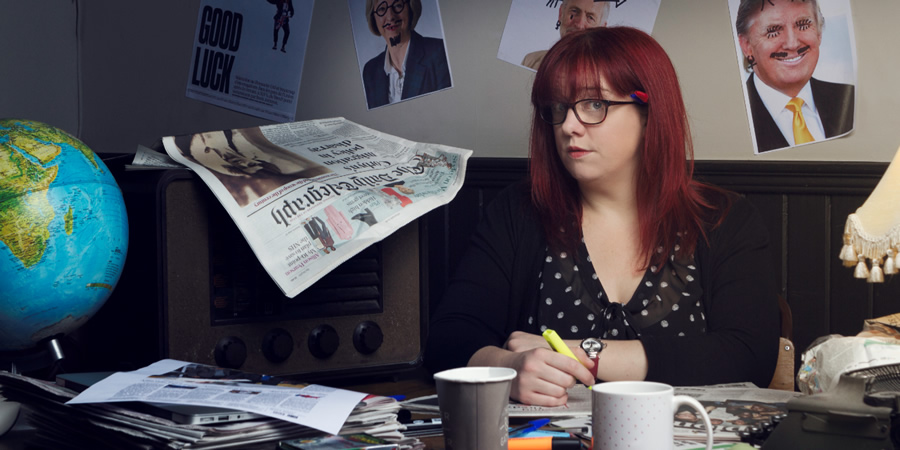
9am: Tuesday starts with the first meeting with host Angela Barnes. She's not seen any of the material before she comes in, so the first things she works on is her opening monologue.
The two script editors arrive in the office too - professional writers who are paid to help punch up and polish non-commissioned writers' material. But they're only there to help, they aren't pitching their own ideas or writing their own sketches for the show, all the sketches you hear are submissions from non-commissioned writers.
The producers and Angela have a chat with the script editors about the sketches they've brought through. They see which ones they like, which didn't quite work, and if there's anything they can do to fix them.
Some are completely rewritten (normally only one or two), and the rest are tweaked. There's a lot of trimming too - people tend to send really long sketches (Tip: they say the ideal length is around two and a bit pages, but certainly not the 6+ pages they often get!).
Sometimes they see there's a really good idea, but structurally it isn't working. When that happens they all sit down and figure out how to make it work. They really bend over backwards to help good ideas make it onto the air.
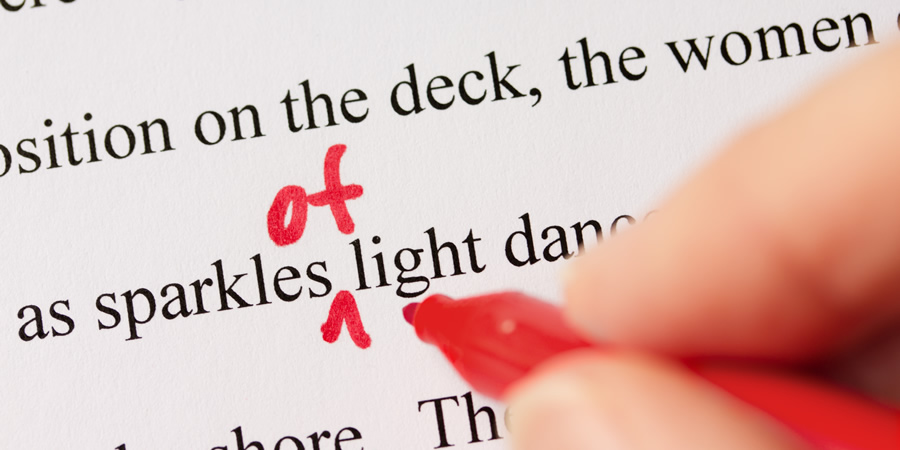
For non-commissioned writers having your work edited might make you feel disappointed, like you didn't get it right. But the truth is even professional scripts and shows will have a huge amount of input from other people. Being edited is part of the process, and it's something to be proud of.
After all this work, they've cut the list of 50 potential sketches down to about 20 or so.
Noon: The one-liner deadline passes. The producers start reading the submissions, and collect all the ones they like into a single document.
5pm: Now it's time for the one-liner party. They gather together anyone who's around in the department, be they contract writers, producers, and sometimes Angela (when she's not off appearing on other shows - the week I went in she'd was recording for Mock The Week, which is a great excuse if ever I heard one).
The process is simple: They read the jokes out loud, and if they get a laugh they go through to the next stage.
Then they review the successful ones and make notes again. Some might need a trim, others some tweaking (having the punchline falling in the middle of the joke rather than the end, for instance, is a common mistake).
All the while, the script editors have been working on the sketches, and they'll continue well into the night, tweaking and editing to give every sketch the very best chance of success. Then once they're finished the producers will read them all again, ready for Wednesday.
"The whole process is about seeing what's funny. We understand that writers are trying to work out what we like but what we really want is strong comedic ideas that we can take and run with. It's great to listen to old episodes, but then people try and do their exact version of that. Don't. Surprise us. Give us something different."
Wednesday
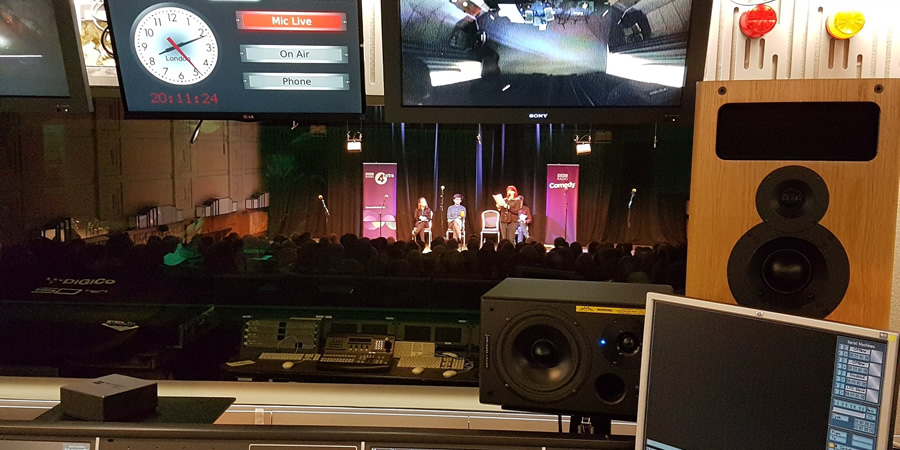
9am: The team start the day meeting with the script editors. They'll discuss what they're thinking, maybe cut a couple more sketches, but almost certainly make more tweaks to the rest.
Angela will look at the material, and start working on her intros to the sketches. They'll also work together to tweak the monologue - as new stories break, the show often uses the monologue to cover them (since the deadlines have passed, and it doesn't go out until Thursday, the monologue is a great place for a bit of topical wiggle room).
Same with one liners - if needed, the script editors might come up with some jokes to cover a new story which would feel like an omission if they didn't include something about it.
1pm: Time for the table read. The performers for the show, the producers, the script editors and Angela all sit to go through material. This will be the first time they hear the script out loud, so there will be more editing, playing with delivery and, occasionally, moments of just "well... that didn't work". But, either way, it's still a supportive atmosphere where they give everything the very best chance of getting through.
7pm: The cast and crew get ready for the recording in front of the studio audience (which you can get tickets for here). They're making tweaks and additions even until the very last minute.
The executive producer is there for the recording too. They're ready to chip in with editing suggestions, as well as considering any compliance issues. They'll give notes, but because the team record extra material for each show they've still got a lot to work with.
Thursday
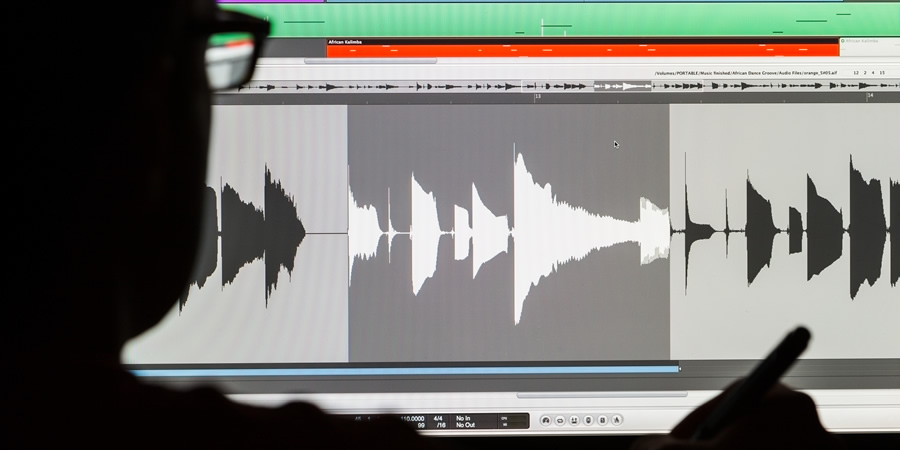
9am: The producers start editing the show over at BBC Television Centre.
Obviously by this stage they know what does and doesn't work, but there's still a lot of thinking that goes into the edit. For instance, they'll want to balance the performers delivering the one-liners, and also a balance on the topics covered.
There's also a certain element of balance over the series. They get a lot of sketches on big subjects, so making sure they don't repeat themselves is an important challenge to get right, so that they're always surprising the listeners.
Noon: The executive producer comes in again to hear the finished show. There's still time to make minor changes, but the substantial form is in place.
5:30pm ish: The final version is sent off, ready to air.
Once the show is 'locked', emails are sent to the writers whose sketches and one-liners were part of the recording. Production Coordinator Nick Coupe explains that he and the team send two types of emails at this point. "One to say 'Thanks for your submissions - some of your material made it into the script but not the final edit of the show', and one to say 'You're in! Tune in and send us your bank details.'"
10:30pm: The show is transmitted on Radio 4 Extra.
Friday
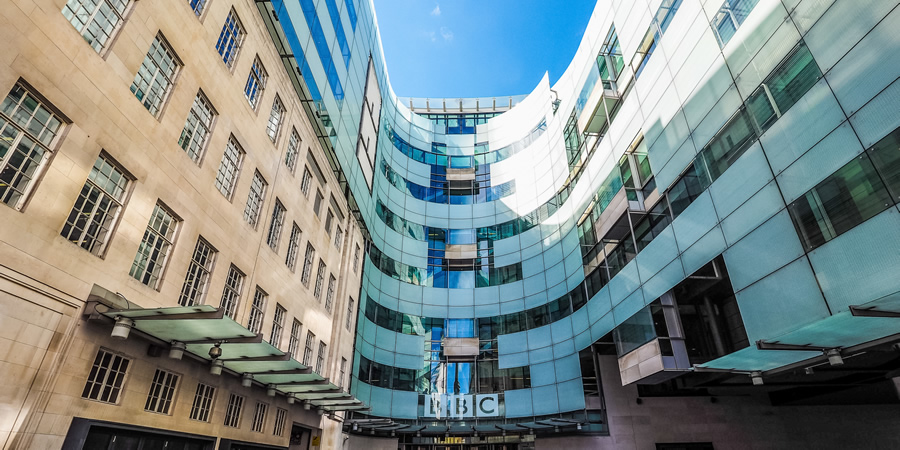
Admin day - As the show's gone out, there's nothing much to do on it until the next week. That means the producers have time to work on other projects (when we visited one of the producers had a pilot in production, and the other had a show going out the week after Newsjack finished, so there's no real "downtime").
Saturday
Their day off. Come on, they deserve at least one!
Sunday
The process repeats...
Insider tip
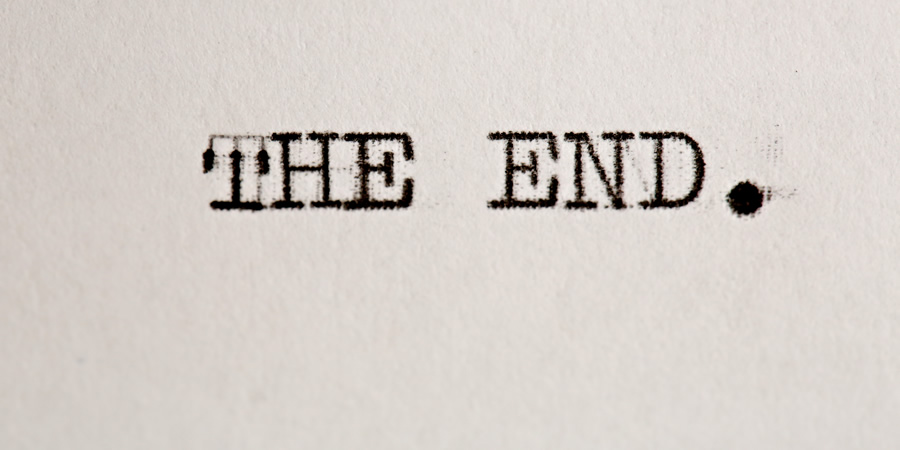
With two such influential people in a room with me, I couldn't help but ask... what is the BIG secret? What do they wish more people knew?
Their big wish: that more writers would put an ending on their sketches.
Some sketches fizzle out. Some just stop abruptly. And apparently it's not uncommon for people to even give alternate endings. But what the producers really want is just one ending. The one you like best.
They appreciate how tough it can be, especially sat in a room on your own with no one to bounce ideas off. But make a choice. They might change it, but making a choice lets them know where you're trying to take the idea, which in turn helps them to make it work.
"We want you to make a strong choice. Be bold. Be original. If we don't like the end, but like the rest of the idea, we'll make it work."
So there you have it - the fascinating (and busy) world of topical comedy. If you've ever wanted to be a comedy writer, there really is no better opportunity to get started. And, even if you're a comedy fan with no plan to dabble yourself, it's definitely a show to check out. It's where the future of British comedy is being nurtured, and the writers of future sitcoms and shows are honing their craft. And, if you don't think that's worth supporting... well, it just so happens to be damn funny too!
For more insight and tips see our Guide to writing for Newsjack

